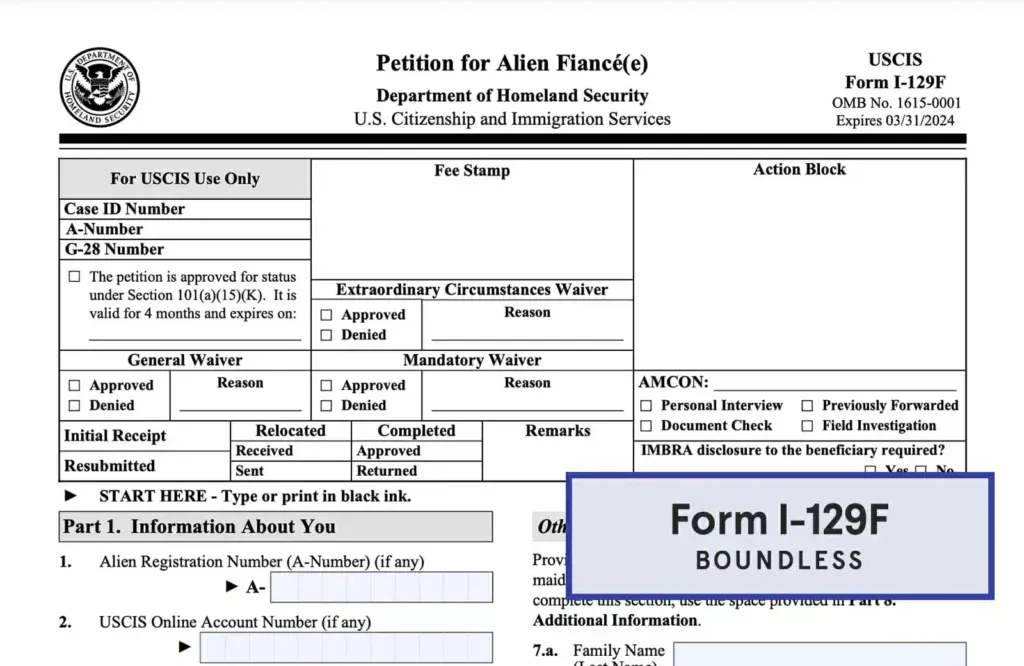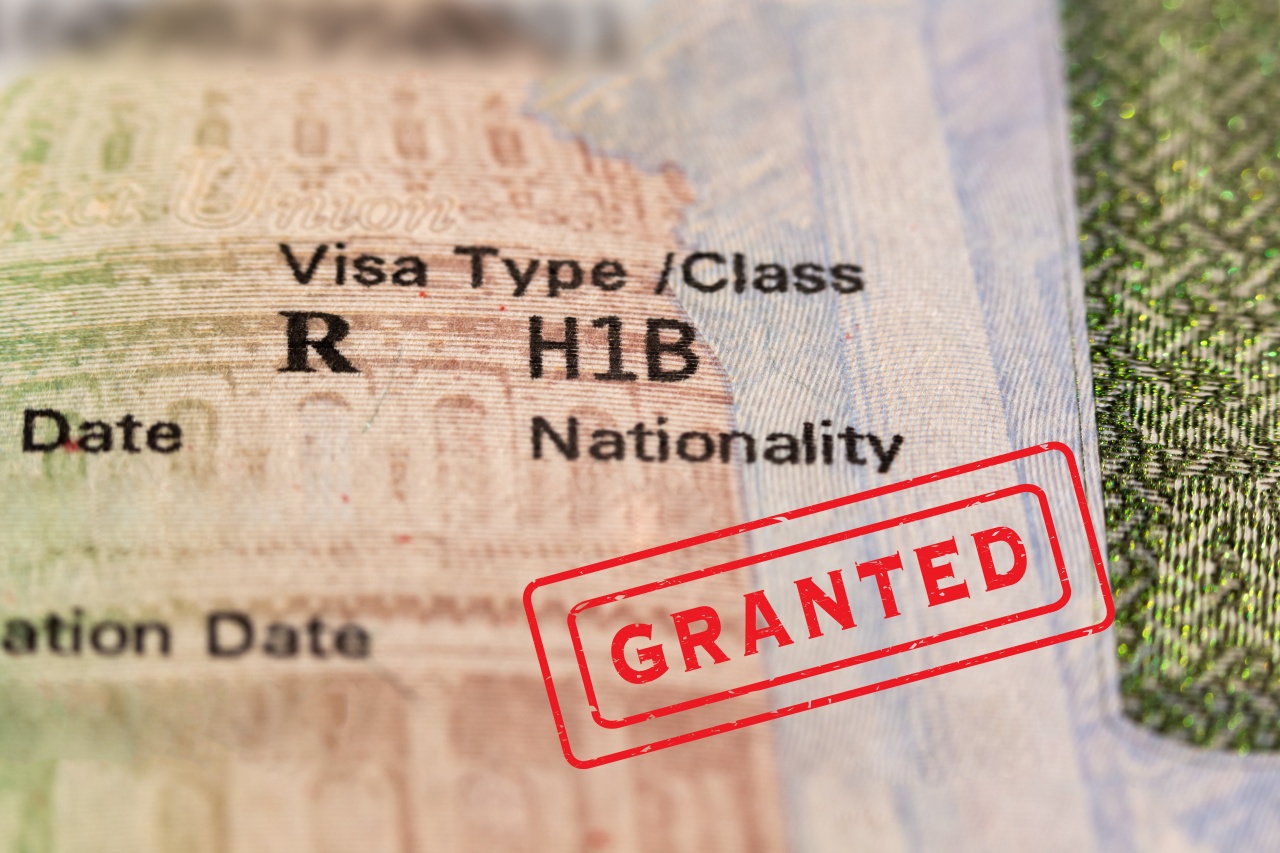The H1B visa sponsorship program is a critical tool for employers looking to hire skilled foreign workers. It allows U.S. companies to sponsor non-immigrant professionals, enabling them to work in the United States for a specific period. But as immigration laws evolve, employers like OH partners may wonder whether they need to engage in H1B visa sponsorship. Understanding the intricacies of this program, its requirements, and implications will help businesses make informed decisions.
What Is H1B Visa Sponsorship?
H1B visa sponsorship is a process where an employer petitions the U.S. government to hire a foreign worker in a specialty occupation. These positions typically require theoretical and practical knowledge, often requiring a bachelor’s degree or higher in specific fields like technology, engineering, medicine, or finance.
Employers who wish to hire foreign professionals must navigate a multi-step process, which includes filing forms with the U.S. Citizenship and Immigration Services (USCIS), paying fees, and ensuring compliance with Department of Labor requirements.
Does OH Partners Need H1B Visa Sponsorship?
For companies like OH Partners, the need for H1B visa sponsorship depends on various factors, including the availability of qualified talent in the domestic market and the specific needs of the business. If the company operates in industries where talent shortages exist, such as technology or engineering, seeking foreign professionals through H1B visa sponsorship might be a viable option.
However, businesses must weigh the costs and benefits of this process, as it can be time-consuming and expensive. Companies should evaluate their hiring needs, the availability of U.S. talent, and the potential impact of bringing in foreign workers.
The Process of H1B Visa Sponsorship
1. Identifying the Need for Foreign Talent
OH Partners, like any other company, must first assess whether the required skill set is available in the U.S. labor market. If domestic talent is scarce, they might consider H1B visa sponsorship as a solution to fill critical roles.
2. Filing a Labor Condition Application (LCA)
Before an H1B visa petition is filed, employers must submit an LCA to the Department of Labor (DOL). The LCA ensures that hiring a foreign worker will not negatively impact the wages and working conditions of U.S. workers in similar roles. It also guarantees that the foreign employee will be paid at least the prevailing wage for their role.
3. Submitting Form I-129
After the LCA is certified, the employer must submit Form I-129 (Petition for a Nonimmigrant Worker) to the USCIS. This form initiates the process of obtaining H1B status for the employee.
4. Navigating the H1B Cap and Lottery System
The H1B visa program has an annual cap of 85,000 visas, including 20,000 reserved for individuals with a master’s degree or higher from a U.S. institution. If the number of applicants exceeds this cap, a lottery system is used to determine which applications are processed. Companies like OH Partners must be aware of this limitation and the timing of their petitions to avoid missing out on qualified talent.
5. Obtaining the Visa and Bringing the Employee Onboard
Once the H1B petition is approved, the foreign employee can begin working in the U.S. for up to three years, with the possibility of an extension for an additional three years. It’s crucial for employers to ensure compliance with visa requirements to avoid penalties or visa revocation.
Advantages and Challenges of H1B Visa Sponsorship for OH Partners
Advantages
- Access to Global Talent: Sponsoring an H1B visa allows companies to tap into a broader talent pool, especially in specialized fields like IT, healthcare, and engineering.
- Diverse Skill Sets: Hiring foreign professionals can bring new perspectives and ideas, potentially giving the company a competitive edge.
- Flexibility: H1B visa holders can work for the sponsoring employer for up to six years, allowing companies to retain top talent.
Challenges
- Cost: The H1B visa sponsorship process can be expensive, with filing fees, legal costs, and compliance requirements.
- Cap Limitations: With the annual cap on H1B visas, companies may face stiff competition in obtaining visas for their preferred candidates.
- Compliance: Employers must navigate a complex regulatory landscape to ensure compliance with DOL and USCIS requirements.
Real-World Example: Tech Giants and H1B Sponsorship
Many large U.S. companies, especially in the tech sector, have long relied on H1B visas to fill roles in software development, data analysis, and engineering. For example, companies like Google, Amazon, and Microsoft consistently sponsor thousands of H1B visas annually due to a shortage of skilled U.S. workers in these fields.
Similarly, companies in marketing, digital advertising, or creative industries, like OH Partners, may benefit from hiring foreign talent, particularly if specialized skill sets are needed that are hard to find domestically.

How H1B Visa Sponsorship Benefits U.S. Companies
1. Innovation and Growth
Foreign professionals often bring unique skills and perspectives that can drive innovation. For companies in creative industries, new ideas and global perspectives are invaluable in staying competitive.
2. Bridging the Skills Gap
The U.S. labor market may not always produce enough workers with the specialized skills needed for certain jobs. H1B visa sponsorship helps companies bridge this gap by allowing them to recruit from a global talent pool.
3. Long-Term Retention
H1B visa holders are often more likely to stay with their sponsoring employers due to visa restrictions, leading to lower turnover rates and the retention of skilled employees.
FAQs on H1B Visa Sponsorship
The process involves submitting a Labor Condition Application (LCA), filing Form I-129 with USCIS, and navigating the H1B lottery system if necessary.
An H1B visa allows an employee to work in the U.S. for up to three years, with the possibility of a three-year extension.
Industries that frequently use H1B visa sponsorship include technology, healthcare, finance, and engineering.
The primary risks include high costs, the cap limit on H1B visas, and the potential for non-compliance with U.S. labor laws.
Key Takeaways
- H1B visa sponsorship allows companies to hire foreign workers for specialized roles, especially in industries facing domestic talent shortages.
- The sponsorship process requires careful planning, compliance with legal requirements, and awareness of visa caps and lotteries.
- For OH Partners, assessing the need for foreign talent and weighing the costs and benefits of H1B sponsorship can help in making informed hiring decisions.
- Access to a global talent pool through the H1B visa program can drive innovation, fill critical roles, and provide a competitive edge in specialized fields.
OH Partners, like many businesses, may find themselves in a position where they need to consider H1B visa sponsorship to remain competitive in the marketplace. Understanding the process, the advantages, and the challenges of sponsoring foreign professionals is crucial for making the right decision. By carefully evaluating their staffing needs and the availability of U.S. workers, OH Partners can determine whether H1B visa sponsorship aligns with their long-term goals and operational needs.
As the global job market continues to evolve, companies that can navigate immigration processes effectively will be better positioned to attract top talent, foster innovation, and sustain growth.
Read More: How to Apply for an H-1B Visa: A Step-by-Step Guide
To provide useful external sources for readers looking to learn more about H1B visa sponsorship, here are some resources they can explore:
- U.S. Citizenship and Immigration Services (USCIS) H1B Visa Page
The official USCIS page offers comprehensive information about H1B visas, including eligibility requirements, application procedures, and legal guidelines. It’s an essential resource for both employers and prospective employees. - Department of Labor (DOL) Foreign Labor Certification
This page provides detailed guidance on the Labor Condition Application (LCA) process, which is a critical component of H1B sponsorship. Employers must certify LCAs with the DOL before filing an H1B petition. - Immihelp – H1B Visa Overview
Immihelp offers easy-to-understand guides on H1B visa processes, including FAQs, document requirements, and timelines. It’s a user-friendly resource that simplifies complex immigration terminology for readers. - Find Immigration Lawyers
For those seeking professional legal advice, the American Immigration Lawyers Association (AILA) provides a directory where readers can find qualified immigration attorneys in their area to help navigate the H1B sponsorship process.
These resources offer practical information and legal assistance for those looking to dive deeper into the H1B visa sponsorship process.

Jonathan Hartley is a highly regarded senior criminal lawyer with over 15 years of experience in the UK legal system. He began his career at a prestigious law firm in London, where he specialized in both defense and criminal law. Known for his ability to craft compelling defense strategies, Jonathan has successfully represented clients in high-profile cases and earned multiple awards for his contributions to the field of law.
In addition to his legal practice, Jonathan is also an accomplished legal writer, contributing articles to top legal blogs and online platforms. His work not only provides valuable insights into legal matters but also meets Google’s E-E-A-T standards by delivering accurate, reliable, and trustworthy information to readers. Committed to legal ethics and public welfare, Jonathan actively participates in discussions on law and justice while educating the public through his writing.










